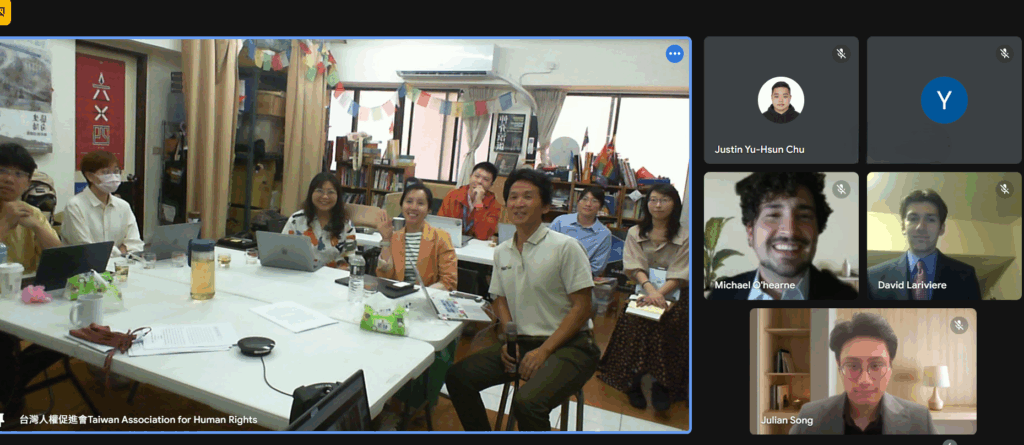On March 27, 2023, Open Net as an Advisory Network member participated in the Freedom Online Coalition’s Strategy & Coordination Meeting in Washington D.C. and advised the Freedom Online Coalition of the growing dangers of administrative censorship in Asia in a joint roundtable between FOC and the Advisory Network to discuss “With so many pressing topics in Internet freedom, where should the FOC focus its attention for greater results?”.
K.S. Park, speaking on behalf of Open Net to an audience of about 50 (about one half government representatives and the other half the members of the Advisory Network, described a trend in Asia whereby ICT ministries are being “repurposed” into a content regulation body which, under authoritarian or semi-authoritarian regimes, is being used as tools of censorship to suppress dissident voices and people. Generally, administrative censorship bodies, unavoidably impaneled through majoritarian political process, cannot be impartial and often become the tools of pro-incumbent manipulation of public opinions or imposing majoritarian values on minority groups as seen in Türkiye, South Korea, and China. For instance, Korea Communication Standards Commission, under the influence of the religious right, has blocked womenonweb.org which distributes information about medicinal abortion, a lifeline for women in abortion-banned countries or low-income women not being able to afford surgical alternatives. Many of the website blockings in Türkiye initiated through administrative censorship have targeted dissident postings. Also, cutting off speech from the marketplace of ideas without prior judicial authorization causes severe chilling effects on those who would rather be silenced than go through the legal costs of proving that their speech are protected. For these reasons, administrative censorship has been judged as unconstitutional in Philippines, France, Spain, and the United States by their respective highest courts, and warned against in the Manila Principles for Intermediary Liability, and unlike broadcast medium, only a small number of countries had dedicated internet censorship bodies.
2023RightsCon-poster-APAC-content-moderation.png

0 Comments